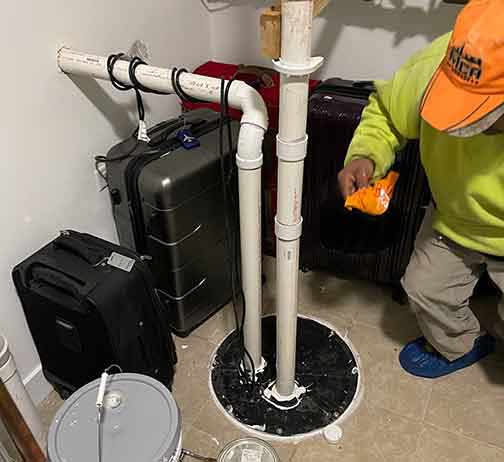
A functional ejector pump is an essential feature in homes where some of the building’s plumbing fixtures are below the level of the municipal sewer line in the street. Without the constant operation of the ejector pump, Real Property Management team says the home would become completely unlivable in a short time.
That is because ejector pumps help compensate for the shortcomings of the home’s plumbing. By lifting sewage from the lower levels of the house and pushing it into the main sewer line, these homes can function like the ones with regular plumbing systems.
But all these can change if the ejector pump suddenly stops working. A failed ejector pump is easily the worst plumbing emergency in your home, especially if the problem is not discovered on time or if it happens during the weekend or on a holiday.
That is why discovering ejector pump failure before it happens is critical. The difference between an ejector pump issue that is uncovered before it becomes a plumbing emergency and one that causes problems in your home can run into thousands of dollars.
That is apart from the emotional stress and health risk a failed ejector pump poses to your family. A failed ejector pump can also inflict costly water damage on your home. But you can avoid all that if you know how to detect the early warning signs that your ejector pump is about to fail.
6 signs that your ejector pump needs repair or replacement
Slow draining fixtures
If your ejector pump is not performing optimally, the first signs will typically appear in your drains. You may start to see simultaneous slow drains across the home. If several drains in your home are not working, the cause can be found in your main sewer line or the ejector pump. If only a single drain in the house is malfunctioning, it is usually not an indication of problems with your ejector pump.
Strange noises
Grinding, clanging and rattling sounds from your ejector pump are not normal. The pump motor is meant to produce some sounds when working, but this is usually a low humming noise. But if you start to hear sounds of metal rubbing against metal or rattling sounds caused by excessive vibration of the motor, it is time to have the pump checked. Usually, these sounds are a sign that the pump impeller is damaged or obstructed.
Frequent clogs in the home
Drain clogs are bound to happen in your home, but they should be an occasional problem. If the frequency of drain clogs in your home has increased and the problem keeps returning even after you tried to solve it, your drains may not be the problem. There is a chance that the ejector pump is not working, causing wastewater to build up inside your drain lines, resulting in clogged or slow drains.
Bad odors in your home
Before they reach the stage of causing slow or clogged drains and strange noises in your home, ejector pump problems may present themselves in the form of foul odors within your home. These bad odors are caused by the accumulation of pungent gases inside the home’s drainage lines. Because of clogs in the system, these gases cannot find their way into the sewer line, so they forcefully enter your home. You may want to check your ejector pump if you perceive a terrible odor in your home.
The high water level inside the pump basin
Since the ejector pump is supposed to empty it constantly, the water inside the pump pit should never be high. If there is a lot of water inside the pump basin, your ejector pump is either not working or running but not pumping. This problem could also be due to a jammed or faulty float switch. At the first sign of high water levels inside the ejector pit, you should check your pump.
Frequent pump cycling
Depending on the size of your pump pit, how many plumbing fixtures are connected to it and the number of people in the home, a certain amount of water will enter the pump pit daily. That will determine the average number of times the pump cycles daily. A cycle begins when the pump powers on and ends when it goes off. If the pump is cycling too often, it is because it is not pumping effectively. Frequent cycling increases the risk that your ejector pump motor will burn.
Finally, it is useless if you know all the signs of an impending ejector pump failure but never inspect your pump. The goal of knowing these signs is so you can detect and prevent ejector pump failure. But this is only possible with regular inspections and the guidance of a licensed and experienced plumber.


